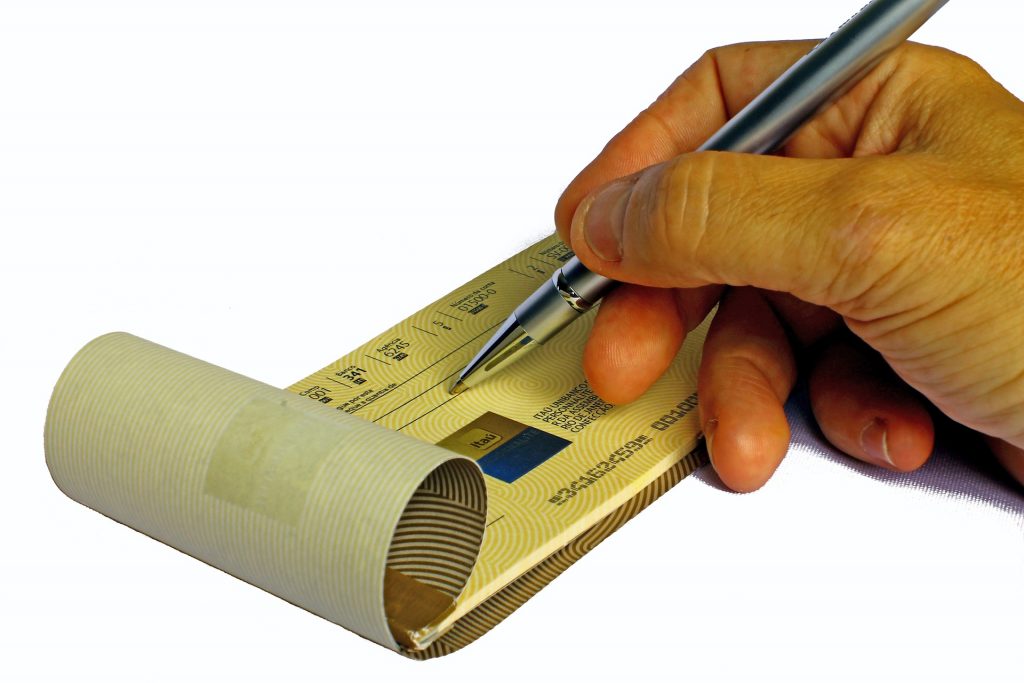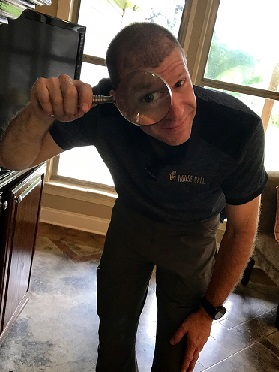Being a professional home inspector is a wonderful thing. It’s an exciting business, it allows us to provide for our families and helping other people (our clients) can often prove to be a rewarding experience. But, we all must occasionally face the stress of problems in our business. Thankfully for us, a properly executed home inspection contract can help minimize (or even prevent) some of these difficulties.
In this article, we continue our discussion (part 2 of 3) on how to fashion an effective inspection agreement. (Click here to read part 1).

What is Our Liability
A section outlining the limits of the inspector’s liability should always be included in our inspection agreement, although what constitutes a reasonable limit of an inspector’s liability is subject to much debate. Many inspectors place the limits of their liability to a refund of the original price of the home inspection. This seems logical, as you certainly wouldn’t try to return a non-functional appliance back to the store where you purchased it and expect them to refund you more money than you paid for it! However, there is some debate on whether or not a court will accept such a low limit of liability (a refund of the inspection fee) for something as important as a home inspection, that when done improperly, has the potential for significant financial implications for a new homeowner.
Some inspectors raise their limits of liability to two or three times the amount of the inspection price, in an attempt to show a court that they were amenable to accepting liability in excess of their initial fee. This technique is still up for debate, as there is not yet enough case law to determine whether or not it’s an effective strategy. It’s recommended that you discuss the limits of liability listed in your contract with a qualified local attorney prior to using a contract in your business, to make sure that you’re following your local laws as well as doing everything you can to protect your business.
General, Visual and Limited
The limitations section is also a good place to reiterate that we’re performing a limited, general, visual inspection, and explain that we may advise the client to engage the services of specific contractors to further evaluate any potential problems that we identify during our inspection. This is the perfect opportunity to explain that once we recommend that our client hire an outside contractor to follow up on our findings, we are no longer liable for those items. If this is an allowable practice in your state, a statement like this can add some serious ammunition to your defense in the event of a lawsuit.
Arbitrator, Anyone?
Arbitration clauses have become synonymous with business agreements these days, as it often seems that we can’t buy a loaf of bread anymore without signing an arbitration clause. However, arbitration clauses can be an effective tool in our defense, as they help steer complaints to an arbitrator rather than a court. Arbitration proceedings have historically been much less profitable for opposing attorneys, and therefore reduces the interest level of most attorneys in pursuing such a case. While state laws vary on the enforceability of arbitration clauses, having a claim settled by a third-party arbitrator who’s familiar with the home inspection industry and its rules and laws is more likely to produce a reasonable outcome than proceeding to a court situation, where a judge or jury may have no idea what it is that a home inspector does for a living. Be sure to verify with a local attorney the proper language to use and the correct arbitration rules to reference in this section. Improperly formatted arbitration clause language can cause significant damage to your case.
Severability
A good contract should also include language on severability, to explain that should a court find that one part of our agreement is unenforceable, the rest of the contract shall remain in effect. This clause helps to keep an opposing attorney from arguing that because a mistake was made in one part of the contract, that one mistake should void our entire agreement.
Contracts, Contracts, Contracts
While it’s recommended that an inspector utilize different inspection agreements for each unique inspection product they offer (pool, radon, lead, mold, septic, termite, etc.), having that many different contracts can sometimes cause headaches, especially if the inspection software system you use doesn’t provide an easy way to accomplish this through automation. In an attempt to make our standard agreement useful for more than one specific product, we use a “Condominium Inspection Exclusion” section in our home inspection agreement. This section identifies the parts of a typical home inspection that are not included when we perform a condo inspection, such as inspection of common areas and roofs. In this section, we also advise the client to contact the condo association to determine the extent of their responsibility when it comes to maintenance of these areas.
Sometimes, confusion will arise when we’re hired to perform a service, such as a termite inspection, that is specifically excluded from the home inspection by the limitations and exclusions in our contract. In an attempt to minimize this problem, we include a section stipulating that this contract is specifically for home inspection services. It states that if any additional inspection services are to be contracted with the inspector, those services will be covered by a separate agreement to be provided to the client by their inspector. This helps to minimize confusion over any add-on services that are normally outside the purview of a standard home inspection.
The Four-Letter Word (M-O-L-D)
As mold-related claims are currently one of the most common problems for home inspectors, it’s important that our contract address mold issues directly. In addition to the contract and copy of the SOP and Code of Ethics that we send to our clients prior to the inspection, we include information on mold and the problems that it can cause. This handout is referenced in our contract’s mold disclaimer, including language verifying that the client has received, read and understands the information presented in the mold handout as well as the disclaimers included in the contract mold information section. Also included in our agreement is language to directly advise the client that it’s their sole responsibility to contract with a qualified mold consultant prior to the end of their inspection period to assess the presence of mold in the structure and to determine any necessary methods of remediation. By preemptively addressing mold in the contract and pre-inspection paperwork, we hope to add some level of protection to our defense in case of future mold-related problems.
Body Language
In our industry, bodily harm lawsuits have been increasing over the years. In an attempt to head off any injury related claims, we include a hold harmless clause in our agreement. This clause explains that many of the things that an inspector is called upon to do during the course of performing an inspection, such as climbing on the roof and walking in an attic, are inherently dangerous and should not be attempted by the client or any of their representatives in attendance. The client agrees to hold the inspector and their company harmless for any injury claims levied against the inspector by the client or anyone attending the inspection with, or on behalf of, the client. This means that if the client’s elderly father follows the inspector into the attic and falls through the ceiling, injuring himself in the process, the client shall be liable for any claims made against the inspector by the elderly father. The hope is that this language will discourage the client and members of their party from following the inspector during the inspection process. While we know that hard-headed people are still going to do whatever they want, at least having some protective language in our contract will provide a degree of protection in the event of a lawsuit.
Let’s Get Digital
While ancient, dinosaur home inspectors can recall a time when clients would actually sign the paper inspection agreement with a pen and receive a printed copy of their report, most modern inspection businesses operate exclusively in the digital realm. From scheduling, on-site reporting and picture taking, contract and report delivery to follow up and marketing, the vast majority of our business takes place digitally. While federal law authorizes us to conduct business online, it’s a good idea to get an electronic transaction authorization signed by the client. Referencing the Uniform Electronic Transaction Act, this section authorizes us to conduct business with our clients digitally, including having them sign contracts as well as authorizing us to deliver reports and other pertinent items to them by email or other digital means.
Who Gets the Bill?
Sections of the contract dealing with attorney’s fees are always a point of dispute, with some jurisdictions allowing them while others disclaim them entirely. As always, refer to a qualified local attorney before implementing any changes to your agreement. Our contract attempts to make the clients responsible for our attorney’s fees should they attempt to file a lawsuit against our company without going through the agreed-upon route of dispute resolution through arbitration.

Prescriptive Period
Depending on your state’s laws dictating business liability, it may be beneficial to include contract language identifying any applicable statute of limitations regarding claims against your company. Verify what laws, if any, your state has in place to deal with inspection liability and incorporate any favorable language into your contract. In my home state of Louisiana, there is a one-year prescriptive period relating to home inspections, meaning that a client has a one-year window after the inspection to file suit against their inspector. Explaining this limitation in our contract helps to reinforce these limits and adds to our side’s defense in the event of any problems.
(FYI: If your state doesn’t currently have a set prescriptive period protecting home inspectors from lawsuits, I recommend that you bring this fact up with your inspection board or governing entity. Other states and professions have the legal protection of prescriptive periods enshrined in state law, and there’s no reason that you shouldn’t be afforded the same protections, especially if you’re paying fees to a governing entity in charge of your license.)
Properly formatted inspection contracts can help explain the specific guidelines of our business relationship with our clients. These guidelines serve as a baseline, helping to define our responsibility if we ever end up in a situation where our clients feel that we haven’t lived up to our end of the bargain. Having a clearly written contract, explaining the parameters of our responsibilities, can go a long way to solving a potential disagreement.
Check in next week for the last of our three-part series on our most important document, the home inspection contract.
Ubiquitous Legal Disclaimer
Please be aware that this article is intended to provoke thought about your inspection contract and prompt you to consider ways to possibly improve your agreement. It is not intended to be legal advice and should not be taken that way. As always, we recommend consulting with a qualified local attorney prior to implementing any changes to your contract. Laws vary from state to state, and what is permissible in one state may not be so in another. Always take adequate legal precautions prior to making any substantive changes to your business or its paperwork.
If you’ve enjoyed this article, click here to read part 3.
I welcome all feedback (both positive and negative) on this post.
Please take a moment to leave a comment below. Thank you!
Want to be an Influencer in Your Field? Share This Post!
Thanks, Joe

